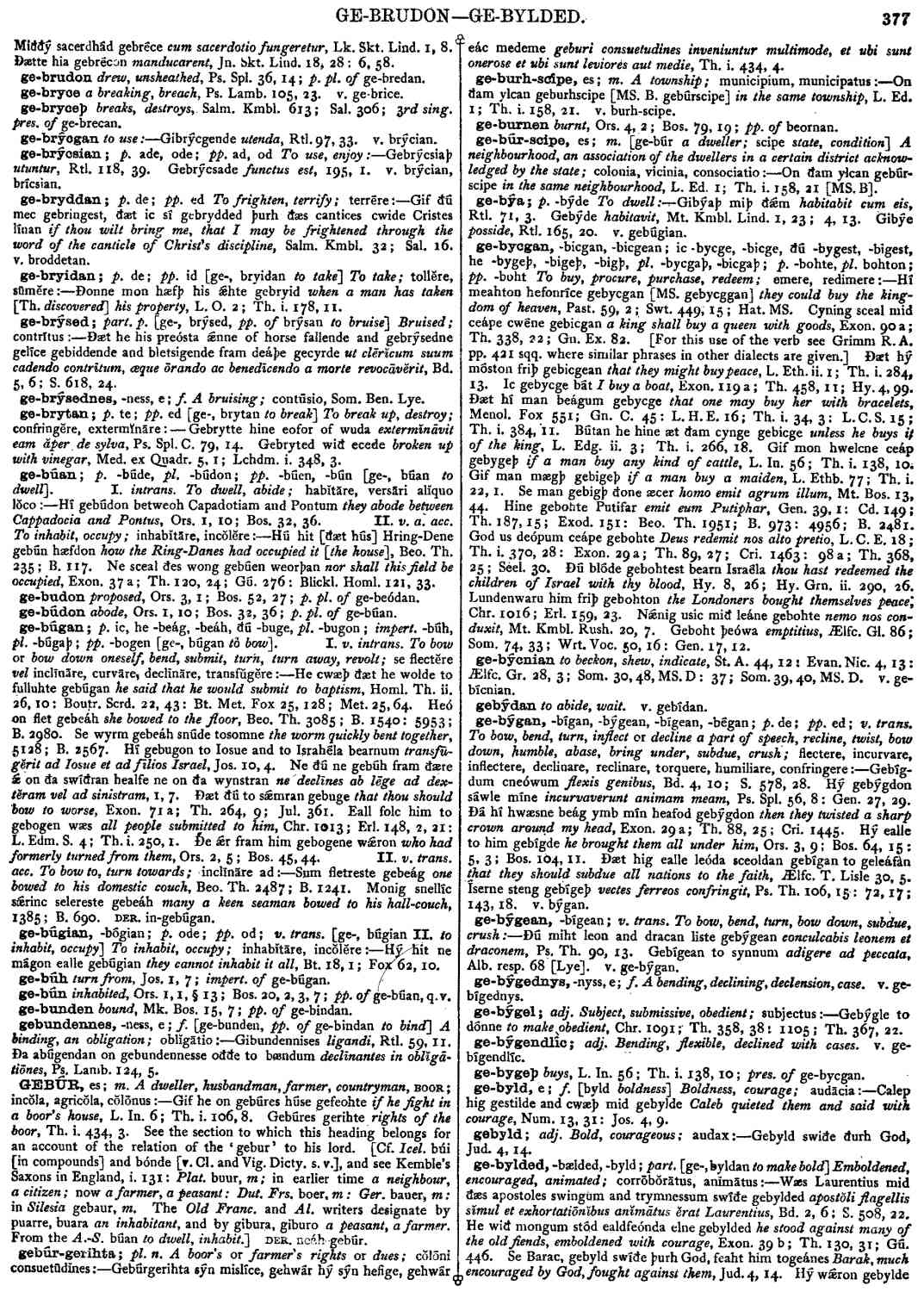GEBÚR
- noun [ masculine ]
-
Gif he on gebúres húse gefeohte
if he fight in a boor's house,
- L. In. 6; Th. i. 106, 8 .
-
Gebúres gerihte
rights of the boor,
- Th. i. 434, 3 .
Bosworth, Joseph. “GEBÚR.” In An Anglo-Saxon Dictionary Online, edited by Thomas Northcote Toller, Christ Sean, and Ondřej Tichy. Prague: Faculty of Arts, Charles University, 2014. https://bosworthtoller.com/13814.
Checked: 1